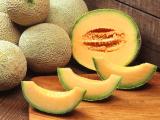Jan 23, 2006 (CIDRAP News) – Japan has again banned American beef following the discovery last week of cattle spine material in an imported shipment, a violation of the recent bilateral agreement designed to keep beef tainted with bovine spongiform encephalopathy (BSE) out of Japan.
Japanese Prime Minister Junichiro Koizumi announced the renewed ban Jan 20, just a few weeks after shipments had resumed in mid-December. US Agriculture Secretary Mike Johanns called the presence of the spine material "an unacceptable failure on our part" to honor the agreement with Japan and promised to take corrective actions.
Japan cut off imports of US beef after the nation's first case of BSE was found in a Canadian-born cow in Washington state in December 2003.
Japan officially agreed on Dec 12, 2005, to resume imports of beef from cattle no more than 20 months old. The agreement required the removal of specified risk materials (SRM)—tissues likely to be contaminated in BSE-infected animals—such as the brain, eyes, vertebral column, spinal cord, and tonsils.
The Japanese Agriculture Ministry said inspectors found cattle backbone material in 3 of 41 boxes in a 389-kilogram shipment of beef from Atlantic Veal & Lamb Inc., according to a Jan 20 Associated Press (AP) report. The firm is located in Brooklyn, N.Y., other reports said.
In a Jan 20 news conference, Johanns said backbones from cattle younger than 20 months are not classified as SRM under US regulations, but the agreement with Japan banned all cattle backbones. "Very clearly what we have learned about this shipment is that it failed to meet the terms of the agreement," he said, according to a transcript.
In a statement, Atlanatic Veal & Lamb said, "We regret that there was a misinterpretation of the export requirements and an honest mistake involving a very small amount of product that has led to this degree of concern."
The company said it was "absolutely confident" that the product was safe. "It is important to note that Atlantic Veal produces veal derived from very young animals—animals that have never tested positive for BSE. We estimate that the veal we shipped came from animals who were less than 4 1/2 months of age," the statement said.
Atlantic Veal & Lamb has been barred from shipping beef to Japan, Johanns said. "We will take the appropriate personnel action against the USDA Food Safety and Inspection Service [FSIS] employee who conducted the inspection of the product in question and approved it for shipment into the Japanese marketplace," he added.
The inspector who approved the meat for shipment to Japan "for whatever reason just did not connect to the fact that the vertebral column needed to be removed before it arrived in Japan," Johanns said.
"This just simply should not have happened," he said.
Johanns said he had ordered additional USDA inspections at plants that process beef for export. He also promised to:
- Investigate the violation and report to the Japanese on the findings and corrective actions.
- Order unannounced inspections at facilities that produce beef for export.
- Send a team to work with the Japanese to reexamine US beef already in Japan to confirm compliance with the agreement.
- Provide for further training of FSIS inspectors on export requirements.
When he was asked if he viewed the renewed import ban as an overreaction, Johanns replied, "I do not believe so at all. . . . In some situations we have taken the same sort of action where we would close borders."
See also:
Transcript of Jan 20 USDA press conference
Atlantic Veal & Lamb statement
http://www.prnewswire.com/news-releases/statement-of-atlantic-veal-and-lamb-on-suspension-of-ability-to-export-53683637.html
Dec 12, 2005, CIDRAP News story "Japan ends BSE-related ban on US beef"


















